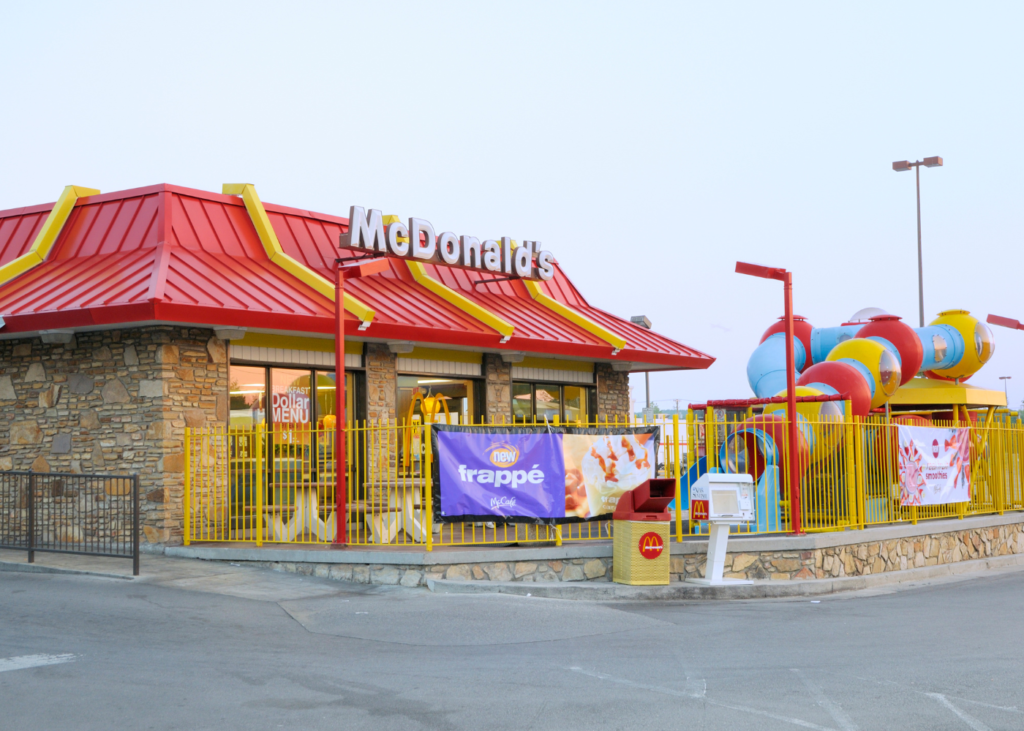How to Start a fast food business in Nigeria 2023 (Earn ₦10k Daily )
Do you want to learn how to start a fast food business in Nigeria? It’s an exciting and rewarding venture. The fast-food restaurant business is one of the most lucrative businesses in Nigeria.
Opening a restaurant in Nigeria offers the advantage of being in control of your own business. You have the freedom to make all the decisions, including menu selection and the way the restaurant operates.
With my Knowledge as a seasoned business professional, I’m here to provide you with valuable insights to help you navigate the exciting world of fast-food entrepreneurship in Nigeria.
I’m here to guide you step-by-step on the path to building a profitable fast-food business.
12 Essential Steps to Starting a Fast Food Business in Nigeria that Succeeds

1. Research and Planning
Before starting a fast food restaurant in Nigeria, it is important to do your research and plan carefully. This will help you avoid wasting time and money.
Take into consideration factors like the local population, their income levels, and the competition in the area.
In addition, think about transportation logistics and choose a location where you can easily conduct your main cooking operations.
If your business location is too far from where you reside, then think about the cost of going to and fro.
SEE ALSO: How To Start Food Supply Business In Nigeria
2. Define Your Concept.
When starting a fast food restaurant in Nigeria, it is important to define your concept. Decide on the type of fast food you want to offer, whether it’s rice, beans, fried chicken, or a combination of dishes.
Consider the preferences of Nigerians and what they enjoy.
Think about the timing that would work best for your business. Many Nigerians find it convenient to have breakfast and lunch at work, so consider offering options that cater to these meal times.
To stand out from competitors, develop a unique selling proposition. Determine what sets your fast food restaurant apart from others in the market.
It could be a special recipe, a particular cooking technique, or a focus on locally sourced ingredients. Highlight this unique aspect to attract customers and differentiate yourself in the industry.
3. Create a Business Plan
For your business plan, start by outlining your goals for the restaurant. Think about what you want to achieve, both in the short-term and long-term. This will give you a clear sense of direction and purpose.
Create a budget and estimate your startup costs, including expenses like rent and equipment.
Consider different financing options, such as personal savings, bank loans, or partnerships with investors, to secure the necessary funds.
When starting a business for the first time, it’s advisable to use the funds you have at hand first. Taking on a loan may cause you to feel unnecessary pressure.
Take into account employee wages, utilities, supplies, and maintenance. By carefully estimating these costs, you can ensure proper financial planning and avoid surprises down the road.
A well-crafted business plan will serve as a roadmap for your fast-food restaurant’s success.
4. Register Your Business
Here are some necessary permits and licenses required to operate a food business.
It’s important to note that specific requirements and procedures may vary depending on your location and the type of food business you plan to operate.
Business Registration: Register your business with the Corporate Affairs Commission (CAC) to obtain a Certificate of Incorporation. This establishes your business as a legal entity.
Food Business Permit: Obtain a Food Business Permit from the National Agency for Food and Drug Administration and Control (NAFDAC). This permit ensures that your food business meets health and safety standards.
Value Added Tax (VAT) Registration: Register for VAT with the Federal Inland Revenue Service (FIRS) if your annual turnover exceeds the threshold set by the government. VAT is a consumption tax on goods and services.
Trade License: Obtain a Trade License from your local government authority. This license grants permission to operate a business within a specific jurisdiction.
Signage Permit: Obtain a Signage Permit from the appropriate authorities if you plan to display signs or advertising materials for your food business.
5. Find a Suitable Location.
When scouting for the perfect location for your fast food business, keep an eye out for high-traffic areas that offer good visibility and easy accessibility.
These factors are key to attracting customers and building a strong presence.
It’s also wise to consider areas near offices, residential neighborhoods, and schools since they tend to draw a steady stream of hungry customers.
This guide is your key to finding the perfect business location in Nigeria.
6. Lease or Buy Space.

Once you’ve chosen your ideal location, it’s time to negotiate a lease or purchase agreement. But that’s not all—safety and regulations should be top priorities.
Ensure the space meets all health and safety standards, and don’t forget to check if it has the necessary facilities for food preparation, storage, and comfortable dining areas.
It’s also important to consider the neighborhood’s reputation when it comes to crime. Look for an area that prioritizes safety and doesn’t tolerate lawlessness.
A secure environment will give you and your customers peace of mind. Let’s make sure your fast food business thrives in a safe and conducive space.
7. Get Your Equipment and Supplies Ready
To start your fast food restaurant in Nigeria, make sure you have the right equipment and supplies. Here’s what to consider:
Kitchen Equipment: Get reliable stoves, ovens, grills, fryers, refrigerators, freezers, and food processors that meet safety standards.
Utensils and Cookware: Stock up on knives, cutting boards, pots, pans, baking sheets, and serving dishes made of durable materials.
Food Storage: Use containers, bins, and shelving units to keep ingredients fresh and organized.
Smallwares and Serving Equipment: Don’t forget spatulas, ladles, tongs, spoons, trays, plates, bowls, glasses, and cutlery based on customer volume.
Cleaning and Sanitation Supplies: Keep a clean environment with detergents, sanitizers, dishwashing equipment, mops, brooms, and trash bins.
Ingredients and Food Supplies: Source fresh, safe ingredients from reliable local vendors and store them properly.
Packaging and To-Go Supplies: If you offer takeout or delivery, use sturdy containers, bags, napkins, and utensils.
Prioritize safety, quality, and efficiency in selecting equipment. Regular maintenance and proper handling will ensure smooth operations in your kitchen.
See the Article 5 Best Freezers for Frozen Food in Nigeria
8. Food Supplies
Establish relationships with reliable suppliers for fresh ingredients, poultry, meat, vegetables, and other necessary food items.
Consider partnering with local farmers or wholesalers for better pricing and quality control.
Here is what you need to know. Making friends with wholesalers and retailers will require you to become flexible and open-minded.
If a price doesn’t feel right you always have the option of looking for cheaper or more expensive alternatives, the quality of goods and services you want will determine your choice.
9. Menu Development and Staffing
Create a diverse menu that appeals to your target market while keeping in mind ingredient availability and cost-effectiveness.
In short, cook what your customers want.
Offer options for different dietary preferences.
Also, consider introducing local flavors or specialties after careful observations and analyzing preferences.
Be transparent with customers and if possible share recipes so they know what they are paying for.
10. Staffing
When building your fast food business dream team, focus on hiring skilled and dedicated individuals who will bring your vision to life.
Look for talented chefs, cooks, kitchen staff, cashiers, and servers who are passionate about what they do.
But it doesn’t stop there—once you have your team onboard, invest in their growth and success.
Provide thorough training on food safety, customer service, and your brand’s standards.
And here’s a little secret: get to know your employees on a personal level. This will create a strong connection and help you understand their needs and desires.
Plus, it’ll make it easier to identify who is the perfect fit for upholding your brand standards.
With a motivated and well-trained team by your side, your fast-food business will flourish beyond expectations.
11. Create Your Online Presence
Create a website and establish social media accounts to showcase your menu and special offers.
Advertise your business on this platform to gain more visibilities
You will also find it useful to list your business on Google for visitors to find your location easily
Engage with your target audience through content, promotions, and customer reviews.
12. Customer Feedback
Encourage customers to provide feedback and reviews.
Address any concerns promptly and continuously strive to improve the quality of your food and service.
FAQs – How to Start a fast food business in Nigeria

Is the Fast Food Business Profitable?
Yes, it is profitable. The fast food business is something you can easily start in Nigeria and make a lot of money.
Did you know that many Nigerians work long hours in jobs?
This leaves them with little time or energy to cook their own meals. That’s why fast food can be a convenient option.
Provide Take-out/Delivery Services.
What Is the Capital Needed to Start a Fast Food Business in Nigeria?
To start a fast food business in Nigeria, you can expect to need a capital range of approximately 250,000 Naira to 5,000,000 Naira.
This amount covers expenses such as leasing a suitable location, equipping the restaurant, obtaining licenses and permits, hiring and training staff, and purchasing inventory and supplies.
The specific capital requirement will depend on factors such as the size, location, and concept of the business.
What Food Makes Money in Nigeria?
Some food options that tend to be profitable in Nigeria include:
- Local Nigerian cuisine (jollof rice, pounded yam, etc.)
- Fast food items (burgers, fried chicken, pizza, etc.)
- Grilled and barbecued foods ( grilled fish, etc.)
- Snacks and small chops (puff puff, samosas, etc.)
- Fresh fruit juices
- Baked goods (bread, cakes, pastries, etc.)
What Are the Challenges of Opening a Fast Food Business in Nigeria?
Challenges of opening a fast food business in Nigeria include:
Competition, inadequate infrastructure, food safety, and hygiene concerns, supply chain management, finding skilled staff, changing consumer preferences, operational costs, and effective marketing and branding.
Before you go…
Starting a fast food business in Nigeria during these challenging times can be hard.
Despite the hardships, there are several reasons why it could be a good idea.
First and foremost, Everybody eats, and fast food establishments offer affordable options.
By offering quick and reasonably priced meals, your fast food business can attract customers who are seeking value for their money.
LIFE HAS GOTTEN BUSIER
Few people have the time or energy to cook at home.
Fast food businesses provide a convenient solution for individuals who are always on the go.
Whether it’s offering takeout or delivery services, you can cater to customers who are looking for a quick and hassle-free meal option.
THE POTENTIAL FOR INNOVATION AND CREATIVITY
The industry is known for its ability to introduce new food concepts and menu items.
By offering a diverse range of options and staying on top of food trends, you can attract customers who are looking for unique dining experiences.
THE GROWING MIDDLE CLASS Is another reason to consider starting a fast food business.
As incomes rise, more individuals have disposable income to spend on dining out and indulging in fast food.
By targeting this demographic, you can tap into a segment of the market with higher purchasing power.
YOU CAN EVEN BECOME THE NEXT KFC OR GENESIS
If your fast food business proves successful, there may be opportunities for brand recognition and expansion through franchising.
Nigeria has seen the growth of successful fast-food franchises that have expanded nationwide.
By building a strong brand and maintaining high-quality products, you could potentially take your business to the next level through franchising, leading to increased revenue and wider reach.
Recommended articles:
- How to Start an Ice Fish Business in Nigeria: A Comprehensive Guide
- 12 Super Tips for Starting a Popcorn Business in Nigeria
- 7 Powerful Steps to Starting an Event Planning Business in Nigeria
- 13 Vital Tips on How to Start a Beauty Product Business in Nigeria
- How to Start Keke Spare Parts Business in Nigeria (Tips for Success.)
- How to start a wallpaper business in Nigeria (The Complete Guide)
- How to Start Ice Block Business in Nigeria
- Step-by-Step Guide to Starting a Successful Palm Oil Business in Nigeria
- Step-by-Step Guide to Starting a Successful Palm Oil Business in Nigeria
- 11 Essential Steps on How to Start a Provision Store Business in Nigeria
- How To Start Foodstuff Business In Nigeria
- How to Start POS Business in Nigeria

